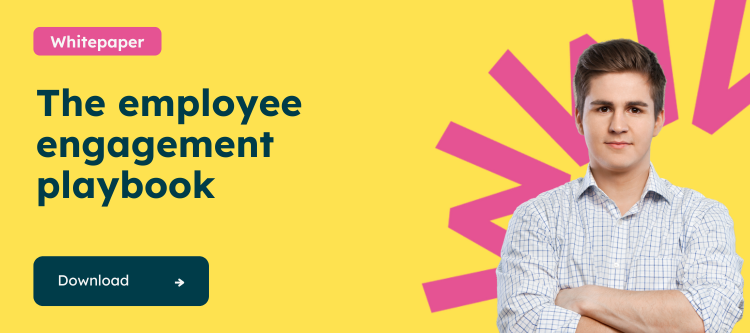Some missed out on the ‘normal’ college experience. Others went straight into working remotely, never having stepped foot in an office. The impact is starting to show. We’ve seen headlines that ‘Gen Z are the most difficult to work with‘ (Forbes) or ‘lack the social skills needed for the office‘ (Business Insider).
But beyond the clickbait titles, one thing is obvious – while this new generation may have a lot to learn, they also have a lot to teach us regarding how we work.
Gen Z: The New Generation in the Workforce
Born between the mid-1990s and the early 2000s, Generation Z, also known as Gen Z, represents the latest cohort of young professionals joining the multigenerational workforce. By 2025, they will make up 27% of the labor pool.
In this article, we’ll explore the unique approach of Generation Z to work and delve into the valuable lessons we can learn from their perspective.
Understanding Generation Zs Approach to Work
So, what is so different about Gen Z compared to previous generations? What influences their approach to work?
Technology-Savvy Digital Natives: Unlike any previous generation, Gen Z was born into a world of technology. They effortlessly navigate the digital landscape.
Entrepreneurial Spirit: Generation Z is ambitious, independent, and eager to take initiative. Rather than solely seeking traditional career paths, they are open to exploring freelancing, side hustles, and innovative projects.
Embracing Diversity and Inclusion: Gen Z prioritizes workplaces that celebrate differences, promote equality, and provide a sense of belonging for all employees.
Desire for Work-Life Balance: They prioritize a healthy balance between their personal and professional lives, valuing flexible work arrangements that allow them to pursue hobbies, spend time with family, and engage in self-care.
The Impact of Gen Z on the Modern Workplace
Generation Z’s entrance into the workforce has already started to shape the dynamics and culture of modern workplaces.
Technological Advancements: With their innate digital proficiency, Gen Z drives technological advancements within organizations. They are often the early adopters of emerging tools and platforms, pushing companies to stay agile and keep up with ever-changing technology trends.
Employee Expectations: As Gen Z prioritizes work-life balance, career development, and purposeful work, they raise the bar for employee expectations. Companies that provide growth opportunities, flexible work options, and meaningful contributions are more likely to attract and retain top talent from this generation.
Workforce Dynamics: The influx of Gen Z into the workforce brings a fresh perspective and energizes intergenerational collaboration. Embracing their innovative ideas and encouraging cross-generational teamwork can lead to more creative problem-solving and enhanced productivity.
Communication Preferences: Generation Z’s communication style heavily rely on digital platforms and social media. Organizations must improve their internal communication strategies to effectively engage with this cohort and leverage their potential as brand advocates.
Embracing Technology and Digital Fluency
Gen Z’s Natural Affinity for Technology
Organizations that wish to attract and retain Gen Z talent must be willing to adapt to this evolving concept of work-life integration. Here are some strategies for promoting well-being and flexibility in the workplace:
Flexible Work Arrangements: Offering flexible work hours and remote work options empowers Gen Z employees to balance their personal and professional commitments effectively.
Mental Health Support: Prioritizing mental health initiatives and providing access to counseling services can profoundly impact Gen Z’s well-being.
Personal Development Opportunities: Organizations can nurture ambition by providing opportunities for upskilling, training, and attending workshops.
Results-Oriented Performance Management: Shifting focus from rigid hours to results allows Gen Z employees to thrive without feeling confined by the clock.
Employee Wellness Programs: Implementing wellness programs that address physical health, stress management, and work-life integration can positively impact employee satisfaction and engagement.
Encourage Unplugging: With the always-connected nature of work, encouraging employees to unplug during non-working hours promotes healthy boundaries and digital well-being.
By embracing these strategies and supporting work-life integration, organizations can create an environment where every generation feels empowered, engaged, and appreciated.
Collaborative and Inclusive Work Culture
Collaboration is at the heart of Generation Z’s work philosophy. Having grown up in an interconnected world, they thrive in team-oriented environments where diverse perspectives combine to drive innovation and problem-solving.
Unlike the competitive nature of previous generations, Gen Z emphasizes cooperation and seeks opportunities to collaborate.
Digital natives by nature, Gen Z seamlessly leverages technology to collaborate across teams, departments, and even continents. Virtual meetings, project management tools, and collaborative platforms are second nature to them, allowing for efficient communication and information sharing.
Fostering an Inclusive Environment for All Generations
As organizations become increasingly diverse, with employees spanning multiple generations, it’s crucial to build an inclusive work culture where each generation’s strengths are harnessed, celebrated, and integrated into the fabric of the company.
Encourage Inter-Generational Mentorship: Promote mentorship programs that pair Gen Z employees with more experienced colleagues from older generations. This facilitates knowledge exchange, provides a platform for skill transfer, and nurtures mutual respect and understanding.
Embrace Diversity in Decision-Making: Encourage diverse employees from different generations to participate in decision-making processes. Multiple viewpoints contribute to well-rounded choices that consider the needs and preferences of all team members.
Open Channels for Communication: Create open channels for communication where employees from different generations can express their ideas, concerns, and suggestions.
Team-Building Activities: Organize team-building activities that encourage intergenerational interaction and collaboration. These activities build camaraderie and break down barriers, fostering a cohesive and unified workforce.
By cultivating a collaborative and inclusive work culture, organizations can harness the full potential of Generation Z and all generations represented in the workforce. An inclusive environment where everyone feels valued and heard is the key to unlocking the true potential of a multigenerational workforce.
Purpose-Driven and Impactful Careers
Understanding Gen Z’s Desire for Meaningful Work
Generation Z seeks more than just a paycheck; they yearn for purpose-driven and impactful careers that align with their values and make a positive difference in the world. They are driven by a deep sense of social responsibility and a desire to contribute meaningfully to society.
Gen Z prioritizes purpose and impact over traditional notions of success. They are more likely to choose employers and career paths that resonate with their values, focusing on organizations with a solid commitment to sustainability, diversity, and ethical practices.
Creating Purposeful Career Paths and Social Impact
To engage and inspire Gen Z employees, organizations must actively cultivate purposeful career paths and emphasize the impact of their work on the greater community. Here are some strategies to align the aspirations of Generation Z with their professional journey:
Clarify Organizational Values: Communicate the company’s mission and values, showcasing how these align with broader societal goals.
Offer Social Impact Initiatives: Provide opportunities for Gen Z employees to participate in social impact initiatives, such as volunteering programs or community outreach projects.
Communicate the Bigger Picture: Emphasize the bigger picture of how projects and initiatives contribute to the organization’s overarching CSR mission.
Recognize and Celebrate Impact: Acknowledge and celebrate the positive impact of Gen Z’s contributions to the organization and society.
Sustainable Business Practices: Embrace sustainable business practices and initiatives. Gen Z is particularly drawn to environmentally conscious organizations that promote sustainable strategies and actively work to reduce their carbon footprint.
Incorporating purpose-driven values into the workplace attracts Gen Z talent and fosters a sense of pride and loyalty among existing employees.
Embracing Change and Adaptability
Generation Z stands out as a generation of agile and adaptable individuals in a world of constant change and disruption. Having grown up in an era of rapid technological advancements and ever-evolving social landscapes, they are well-versed in navigating the dynamic currents of the modern workplace.
This adaptability is crucial in an era where flexibility and resilience are paramount for business success.
Building Resilience and Adaptability Across the Organization
Embracing the Gen Z mindset and implementing strategies that promote agility can lead to a more resilient and future-ready workforce. Here’s how organizations can achieve this:
Continuous Learning Opportunities: Encourage a growth mindset and provide ample opportunities for continued learning and upskilling.
Embrace Change as a Norm: Demonstrate that change is not only inevitable but embraced as an opportunity for growth.
Celebrate Innovation and Risk-Taking: Celebrate employees who take calculated risks and innovate to overcome obstacles.
Agile Decision-Making: Empower teams to make decisions swiftly, especially when facing dynamic situations.
By embracing the inherent adaptability of Generation Z and integrating these principles into the organizational culture, companies can build a workforce that thrives in times of change.
Entrepreneurial Mindset and Innovation
Generation Z has been dubbed the “entrepreneurial generation” for a good reason. Driven by ambition, resourcefulness, and a thirst for creative expression, Gen Z individuals possess a natural entrepreneurial spirit that sets them apart in the workplace. Rather than waiting for opportunities, they are more likely to create them.
This mindset influences how they approach problem-solving. They are unafraid of taking risks and quickly adapt to changing circumstances, making them natural catalysts for innovation.
Encouraging Innovation and Intrapreneurship
To tap into the full potential of Gen Z’s entrepreneurial spirit, organizations must foster a culture that encourages innovation and intrapreneurship. Here are some strategies to harness their creativity and drive:
Cultivate a Culture of Curiosity: Encourage curiosity and experimentation among employees. Provide platforms where they can explore new ideas and showcase their innovative projects.
Support Idea Incubation: Set up programs or dedicated time for employees to work on passion projects or innovative ideas.
Recognition for Innovation: Recognize and celebrate innovative contributions from employees. This can be through rewards, praise, or opportunities to present their ideas to senior management.
Fail-Forward Mentality: Foster a fail-forward mentality where mistakes are viewed as learning opportunities.
By embracing the entrepreneurial spirit of Generation Z and creating an environment that fosters innovation and intrapreneurship, organizations can tap into a wellspring of creativity and drive.
Embracing Diversity and Inclusivity
Having grown up in a more interconnected and socially aware world, Gen Z possesses a heightened sensitivity to issues of inclusivity and equality. For Gen Z, diversity goes beyond demographics; it celebrates unique identities, experiences, and perspectives.
Gen Z’s dedication to social justice is evident in its advocacy for equal opportunities and fair treatment. They seek workplaces that not only embrace diversity but actively work towards creating an inclusive environment where everyone feels heard, respected, and valued.
Cultivating Diversity and Inclusivity in the Workplace:
To truly embrace diversity and inclusivity, organizations must go beyond token gestures and actively cultivate a workplace culture that embodies these values. Here are key strategies to foster a diverse and inclusive work environment:
Diverse Hiring Practices: Implement hiring practices that promote diversity, such as blind resume screening and diverse interview panels.
Inclusive Leadership: Develop inclusive leadership practices that value and amplify the voices of all employees. Inclusive leaders actively seek diverse perspectives and create a sense of belonging among team members.
Zero-Tolerance for Discrimination: Establish a zero-tolerance policy for discrimination, harassment, and microaggressions.
Equal Opportunities for Advancement: Ensure equal opportunities for career advancement and professional growth for all employees, regardless of their background.
By authentically embracing diversity and inclusivity, organizations can harness the power of Gen Z’s commitment to social justice.
Conclusion: Unlocking the Potential of Gen Z – Lessons for the Future
Generation Z brings unique characteristics and values to the workplace, offering valuable lessons for organizations to unlock their potential and shape a successful future. Their natural affinity for technology and digital fluency opens doors to innovation and propels companies toward staying relevant in the digital age. Gen Z’s emphasis on work-life integration and commitment to social impact also paves the way for a more inclusive and purpose-driven work culture.
Embracing diversity, collaboration, and adaptability becomes vital as organizations learn from Gen Z’s entrepreneurial spirit and dedication to social justice. By nurturing an environment that encourages innovation and intrapreneurship, organizations can tap into the creativity of this generation and foster a resilient and agile workforce. These lessons serve as a compass for communication, HR, and leadership professionals, guiding them towards building a workplace that not only attracts top talent but also thrives on diversity, inclusivity, and shared purpose, creating a dynamic and fulfilling work environment for all.
Yvonne Harris
Brand & Communications Manager
Yvonne Harris is the Brand and Communications Manager at Powell, where she spends her days proving that a corporate intranet doesn’t have to look - or feel - like a relic from 1998. With over seven years of experience scaling B2B SaaS brands across Ireland and France, she specializes in turning "boring" workplace tech into human-centric stories. Based in Paris, Yvonne is a self-appointed detective of "brand crimes" and a firm believer that internal communication is a company’s greatest competitive advantage. When she isn’t leading global campaigns, she’s likely advocating for the "intranet glow-up" your employees actually deserve.






